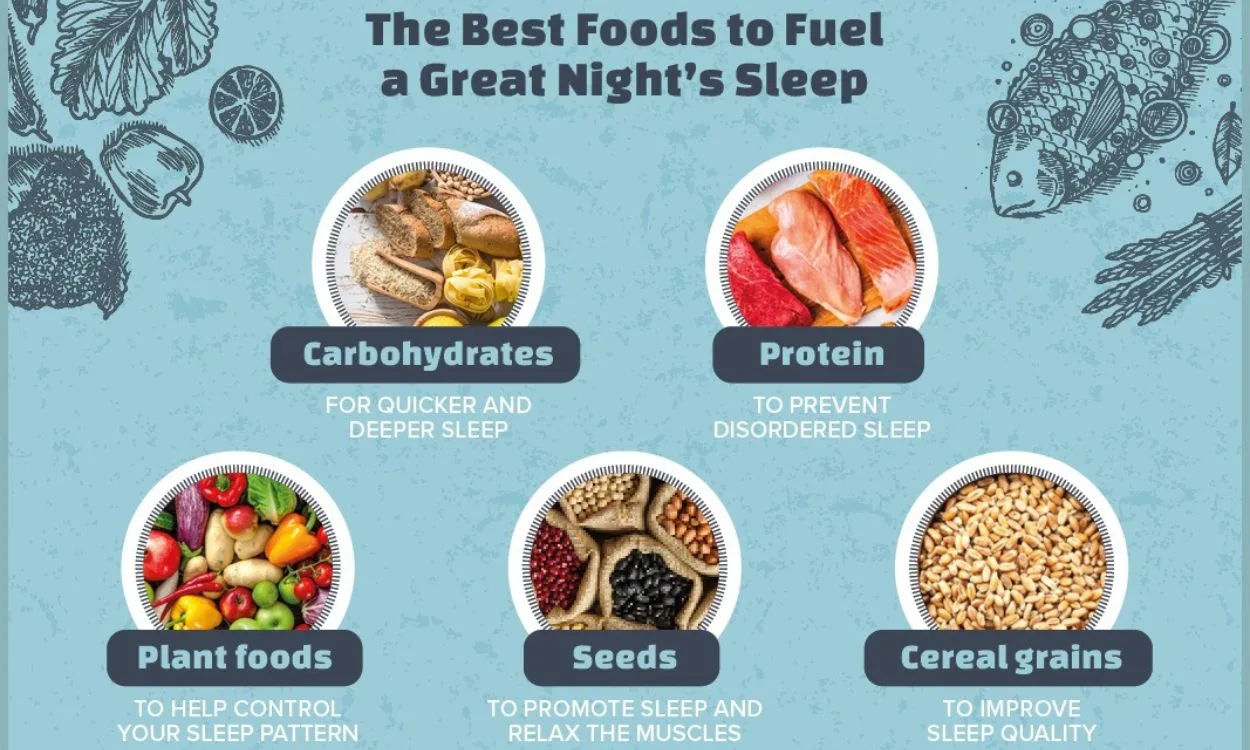Can certain foods improve sleep quality?
Introduction
Getting a good night’s sleep is crucial for overall health and well-being. However, many people struggle with sleep problems, such as insomnia or poor sleep quality. While there are several factors that can affect sleep, including lifestyle habits and stress levels, diet also plays a significant role. In this article, we will explore the relationship between certain foods and sleep quality, and how incorporating these foods into your diet can potentially improve your sleep.
Foods that promote better sleep
- Tryptophan-rich foods: Tryptophan is an amino acid that helps increase the production of serotonin and melatonin, hormones that regulate sleep. Foods rich in tryptophan include:
- Milk and dairy products
- Turkey
- Nuts and seeds, such as almonds and pumpkin seeds
- Chicken and eggs
- Soy products, like tofu and edamame
- Complex carbohydrates: Eating foods with complex carbohydrates can help increase the availability of tryptophan in the brain. These foods include:
- Whole grains, like brown rice and oats
- Legumes, such as lentils and chickpeas
- Sweet potatoes
- Quinoa
- Magnesium-rich foods: Magnesium is a mineral that plays a role in promoting relaxation and better sleep. Foods high in magnesium include:
- Leafy green vegetables, like spinach and kale
- Nuts and seeds
- Whole grains
- Fish, such as salmon and mackerel
- Foods rich in vitamin B6: Vitamin B6 is necessary for the production of serotonin and melatonin. Consuming foods high in vitamin B6 can support healthy sleep patterns. These foods include:
- Bananas
- Chickpeas
- Potatoes
- Poultry, like chicken and turkey
- Herbal teas: Certain herbal teas have calming properties that can promote relaxation and aid in better sleep. Some popular options include:
- Chamomile tea
- Lavender tea
- Valerian root tea
- Peppermint tea
- Foods with melatonin: Melatonin is a hormone that regulates the sleep-wake cycle. Incorporating foods that naturally contain melatonin may help improve sleep quality. These foods include:
- Tart cherries and cherry juice
- Kiwi
- Almonds
Tips for incorporating sleep-promoting foods into your diet
- Create balanced meals: Include a variety of sleep-promoting foods in your meals to ensure you’re getting a good mix of nutrients that support better sleep quality.
- Have a bedtime snack: Opt for a light snack that includes foods rich in tryptophan a couple of hours before bedtime to help promote relaxation and better sleep.
- Limit caffeine and alcohol: Both caffeine and alcohol can interfere with sleep quality. Limit your consumption of these substances, especially in the evening.
- Avoid heavy meals before bed: Eating a heavy meal close to bedtime can lead to discomfort and indigestion, making it harder to fall asleep. Instead, opt for a light and balanced dinner a few hours before bedtime.
- Establish a bedtime routine: Incorporate a relaxing bedtime routine that includes a cup of herbal tea, such as chamomile or lavender, to signal to your body that it’s time to wind down and prepare for sleep.
Conclusion
While certain foods can support better sleep quality, it’s important to remember that overall lifestyle habits, stress management, and a conducive sleep environment also play significant roles in achieving restful sleep. Experiment with incorporating these sleep-promoting foods into your diet and observe their effects on your sleep patterns. However, if you continue to experience sleep difficulties, it’s best to consult a healthcare professional for personalized advice.
If you’re looking for a comprehensive solution to improve your overall health and well-being, including sleep quality, consider downloading the Fitpaa app. Fitpaa offers personalized fitness plans, nutrition guidance, and real-time support from a team of experts. With its evidence-based approach and user-friendly features, Fitpaa can help you achieve your health and fitness goals, including better sleep, with guaranteed results. Take the first step towards a healthier lifestyle by downloading the Fitpaa app today.









